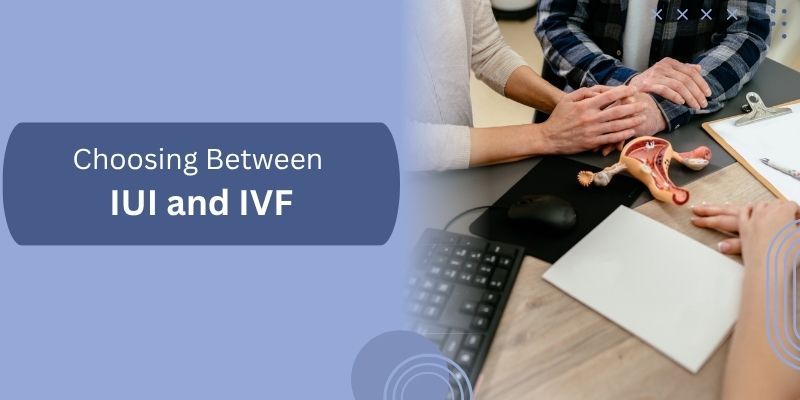Thinking of undergoing fertility treatments? There are only two options available that you can opt for: intrauterine insemination (IUI) and In Vitro Fertilization (IVF). Both these treatments aim to help individuals and couples to overcome infertility, but they differ in procedure, success rates, and costs.
Understanding the key differences between the two can help you make an informed decision about which treatment might be best for you.
So, without wasting any moment, let’s get started by first understanding what IUI is.
What is IUI?
Intrauterine Insemination, or IUI in short, is a simple, less invasive fertility treatment method where the sperm is directly inserted into the uterus during ovulation. Doctors choose IUI treatment in Ahmedabad in cases of mild male infertility, unexplained infertility, or cervical issues.
The IUI Procedure
• To carry out the IUI procedure, ovulation is tracked either naturally or with fertility medications, either through urine tests or serial ultrasounds for monitoring.
• Then a semen sample is collected, washed thoroughly, and concentrated.
• Lastly, the concentrated and washed semen sample is inserted into the uterus using a thin catheter. This is generally done during the ovulation period to increase the chances of conception.
Who Can Benefit from IUI Treatment?
IUI treatment is ideal for:
• Women with cervical mucus issues that can block sperm
• Individuals with mild male factor infertility, such as low sperm count, motility, or morphology
• Same-sex couples, single women, or heterosexual couples using donor sperm
• And for couples that are experiencing unexplained infertility
What is IVF?
Next on the list is In Vitro Fertilization or IVF, a more advanced and complex fertility treatment. In IVF treatment, an egg is fertilized with sperm outside of the body, basically in a lab setting (in vitro). Then the resulting embryo is injected into the uterus to establish a pregnancy. IVF hospitals in Nikol, Ahmedabad, recommend this treatment to couples with more complex fertility challenges or when other treatments have failed.
The IVF Procedure
• The first step is ovarian stimulation. This is done by using fertility medications to stimulate the ovaries to produce multiple eggs.
• Then the mature eggs are collected from the ovaries with the help of a minor surgical procedure.
• After that, the fertilization process starts, where the eggs are fertilized with sperm in a lab, through traditional IVF or Intracytoplasmic Sperm Injection (ICSI), where a single sperm is injected directly into the egg.
• Then the fertilized eggs (embryos) are monitored for a few days.
• Next, a healthy embryo is selected and injected into the uterus to implant and develop into a pregnancy.
• At last, about two weeks later, a blood test is carried out to confirm pregnancy.
Who Can Benefit from IVF Treatment?
IVF treatment is ideal for:
• Women with endometriosis or severe scar tissue
• Patients with severe male infertility, such as low sperm count or poor motility
• Couples who have had multiple failed attempts with IUI or other treatments
• Those looking to undergo genetic testing on embryos before implantation
Which Treatment Should You Opt For?
Choosing between IUI and IVF depends on factors like fertility diagnosis, age, and individual needs. IUI suits mild cases and those seeking a less invasive option, while IVF is ideal for more complex fertility challenges or higher success rates. You can also consult with fertility experts to find the best path forward.



 :
:









